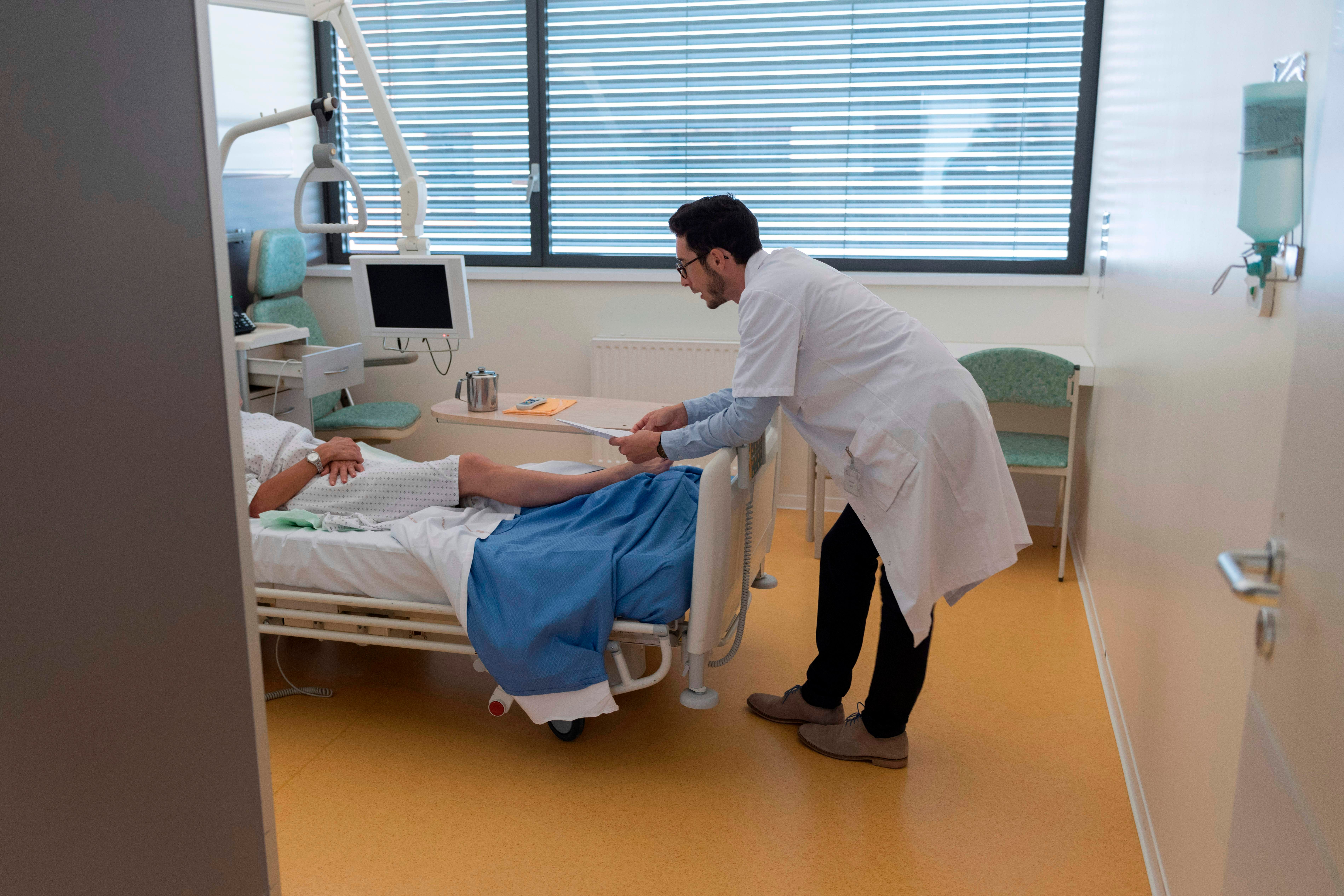How 'gut bugs’ can fuel prostate cancer growth
Scientists believe some patients could benefit from strategies to manipulate their gut bacteria, reports Eleanor Sly

Common gut bacteria can fuel prostate cancer growth and help the disease evade the effects of treatment, a study suggests.
Treatment options for patients with advanced prostate cancer include hormone therapy, where levels of male hormones, or androgens, are lowered. According to the NHS, this type of treatment blocks the effects of testosterone as prostate cancer “needs the hormone testosterone to grow.”
However, researchers have found that low levels of these hormones in patients can push gut bacteria to turn into hormone factories, which in turn can sustain prostate cancer growth.
Certain patients are more susceptible to developing resistance to hormone therapy than others, and scientists at the Institute of Cancer Research (ICR) in London have identified what they describe as bacterial fingerprints. These could help to pick out patients who are at high risk of developing resistance to treatment.
As a result, men with particular bacterial fingerprints could benefit from strategies to manipulate their microbiome, the researcher said.
These strategies could include men undergoing a faecal transplant and researchers also hope that they may be able to produce a yoghurt drink for the men to drink, enriched with favourable bacteria.
Author of the study, Professor Johann de Bono, professor of experimental cancer medicine, said: “Our findings reveal that the initiation of hormone therapy for prostate cancer can trigger ‘gut bugs’ to start producing androgen hormones.
“These androgens can then sustain prostate cancer’s growth and drive resistance to hormone therapy - worsening men’s survival outcomes.”
Professor de Bono, who also works as a consultant medical oncologist at the Royal Marsden NHS Foundation Trust, went on to add that next steps would include creating “tests to pick out men who would benefit from faecal transplants, antibiotic therapy and other strategies to manipulate the microbiome.”
He said: “In the long-term, our aim would be to produce a ‘yoghurt’ enriched with favourable bacteria to prevent resistance to treatment.”
In normal circumstances, gut bacteria are part of our microbiome and are normally of value to humans.
Cancer and other diseases can ruin this equilibrium as they can promote the expansion of gut bacteria and may encourage them to release toxins or other molecules that can affect cancer cells.
The findings may, once further validated, provide new opportunities for treating prostate cancer.
Indeed, the study discovered that removing all gut bacteria in mice with prostate cancer had an effect on slowing tumour growth. It also appeared to delay the emergence of hormone resistance.
It also indicated that transplanting faeces from mice with hormone-resistant prostate cancer could encourage tumour growth in mice with low androgen levels that had not yet developed resistance.
The gut bacteria of a number of prostate cancer patients, being treated at the Royal Marsden NHS Foundation Trust, was also analysed as part of the study
A total of 19 men, whose cancers were still responding to hormone therapy, and 55 men with advanced hormone-resistant prostate cancer were included in the study.
It appeared that transplanting stools from patients with hormone-resistant prostate cancer, into mice whose cancers were not resistant, could promote tumour growth and hormone resistance in the mice.
Professor Kristian Helin, chief executive of the ICR, said: “The influence of the gut microbiome on cancer is a fascinating new area of science that we are just beginning to understand.
She added: “These exciting findings are the first to unveil a mechanism through which the gut microbiome can drive prostate cancer growth and resistance to hormone therapy.”
Dr Matthew Hobbs, director of research at Prostate Cancer UK, who helped to fund the study, told The Independent the research “opens up a totally new avenue for use to explore” which could “make a huge difference to men”.
He added: “We’re delighted to have helped fund this innovative, boundary-pushing research, which provides the first ever clues as to how ‘gut bugs’ might play a role in stopping prostate cancer becoming resistant to treatments.
“We urgently need to understand more about why treatments like androgen deprivation therapy eventually stop working, allowing men’s cancer to grow and progress. This research opens up a totally new avenue for us to explore – one which has potential to make a huge difference to men.”
The study is published in the journal Science and was funded by the Prostate Cancer Foundation, Movember, Prostate Cancer UK, Cancer Research UK and The John Black Charitable Foundation.






Join our commenting forum
Join thought-provoking conversations, follow other Independent readers and see their replies
Comments